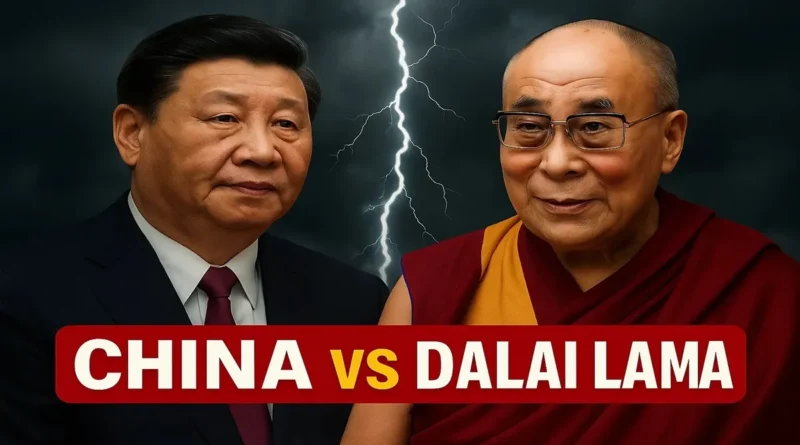Dalai Lama Rejects Chinese Interference in Successor Selection
Dalai Lama’s Stand on His Successor
The 14th Dalai Lama, Tenzin Gyatso, has reiterated that only the Gaden Phodrang Trust the organization representing the Tibetan spiritual leader has the sole authority to decide on the selection of his successor. This clarification came amid renewed concerns about possible Chinese interference in the selection process after his passing.
He emphasized that:
No government or external authority, including the Chinese government, has any legitimacy in the process.
He firmly rejected Beijing’s attempts to influence or control the reincarnation process.
He stated that his reincarnation will not be born in China and will be chosen in a free and spiritually authentic manner outside of Chinese political influence.
China’s Reaction and Claims
China has strongly objected to the Dalai Lama’s remarks. Beijing claims:
The selection of the Dalai Lama’s successor must be approved by the Chinese government.
The reincarnation process should be conducted within China, under Chinese law and procedures.
It argues that the reincarnation of Tibetan lamas is a historical and religious matter that falls under its sovereignty.
Beijing has also pointed to its 2007 “Measures on the Management of the Reincarnation of Living Buddhas,” which assert state control over all Tibetan Buddhist reincarnations.
India’s Response
India, where the Dalai Lama has lived in exile since 1959, has expressed strong objections to China’s stance:
The Indian government supports the Tibetan people’s right to religious freedom.
It has made it clear that the decision regarding the Dalai Lama’s reincarnation lies solely with him and not with any government, including China.
India also reaffirmed that spiritual matters such as reincarnation should not be politicized.
India’s Ministry of External Affairs conveyed that this is a deeply spiritual and religious matter, and any attempt by China to impose its authority is unacceptable.
Global Context and Concerns
Tibetans in exile and many international human rights organizations have warned of China’s efforts to install a “puppet” Dalai Lama after the current one passes away a move that could destabilize Tibetan Buddhism and its leadership.
The Panchen Lama, another key spiritual figure, was abducted by China in 1995, and Beijing appointed its own Panchen Lama a precedent many fear may be repeated with the Dalai Lama.
The U.S. and several European countries have voiced support for the Tibetan people’s right to choose their own religious leaders without interference.
Dalai Lama’s Successor: What Might Happen?
The Dalai Lama has left open the possibility that he may choose his successor while still alive, possibly even ending the tradition of reincarnation if it no longer serves the Tibetan cause.
He has floated the idea of a democratically chosen spiritual leader, or a successor born in a free country outside of Chinese influence.
This approach is seen as a strategic move to ensure spiritual continuity while denying China control over the religious leadership of Tibetan Buddhism.




